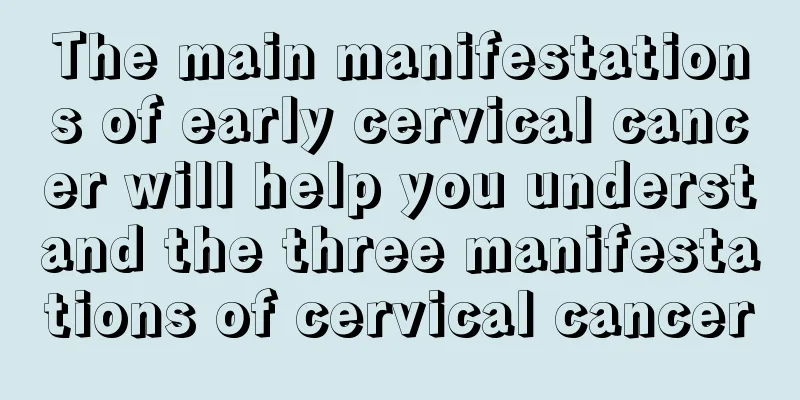What is the reason for feeling of foreign body in throat and holding breath

|
Our pace of life is too fast now, which causes many people to have very irregular meals every day, often going hungry for one meal and full for the next. It’s not that they don’t have money to eat, but that they don’t have time to eat. Especially for some people who are very busy at work, three meals a day will become one meal. Over time, the stomach and intestines will definitely rebel, and such people will suffer from serious stomach problems. So, if you always feel like there is a foreign object in your throat and you feel short of breath, what disease is this? The preliminary diagnosis of the symptoms of foreign body sensation and shortness of breath in the throat is reflux esophagitis. Reflux esophagitis refers to the reflux of gastric and/or duodenal contents into the esophagus. Gastroesophageal reflux can be divided into physiological and pathological types. Physiological gastroesophageal reflux is common in normal people and has no clinical significance. However, if reflux occurs more frequently than in normal people and the acidic digestive gastric juice, pepsin, bile, and pancreatic juice cannot be cleared in time, it will cause inflammation, erosion, ulcers, fibrosis, and other lesions of the esophageal mucosa, which is gastroesophageal reflux disease (GERD). The symptoms of reflux esophagitis are easily confused with those of peptic ulcer and can be misdiagnosed. Reflux esophagitis treatment Medical treatment The purpose is to relieve reflux and reduce the irritation and corrosion of gastric secretions. Generally, asymptomatic sliding hernias do not require treatment. Medical treatment can be performed for patients with mild symptoms of reflux esophagitis or due to age, comorbidities, or unwillingness to undergo surgery. For obese patients, weight loss can reduce intra-abdominal pressure and reflux. Avoid lifting heavy objects, bending over, etc., and do not wear tight clothes. Raising the head of the bed by 15 cm when sleeping, not eating 6 hours before going to bed, and avoiding smoking and drinking can all reduce the onset of esophageal reflux. In terms of drug treatment, antacids can be used to neutralize gastric acid and reduce the activity of pepsin. Gastrokinetic drugs such as domperidone (Motilium) can be used to prolong gastric emptying, and H2 receptor antagonists or proton pump inhibitors can reduce gastric acid and protease secretion. Alginate can float on the surface of gastric juice and prevent gastric juice from reflux. 1. General treatment It is advisable to eat small meals frequently and not to overeat; avoid smoking, alcohol, coffee, chocolate, acidic foods and excessive fat; avoid lying down immediately after a meal; when lying down, raise the head of the bed by 20 to 30 cm, and do not tie the belt too tightly to avoid various conditions that cause excessive abdominal pressure. (ii) Promote the emptying of the esophagus and stomach 1. Dopamine antagonists: This type of drug can promote the emptying of the esophagus and stomach and increase the tension of the LES. Such drugs include metclopramide (Metoclopramide) and domperidone (Domperidone), both of which are 10 to 20 mg, 3 to 4 times a day, taken before bedtime and before meals. The former can cause extrapyramidal neurological symptoms if taken in excessive doses or for long periods of time, so it should be used with caution in elderly patients; the latter can also cause hyperprolactinemia and produce adverse reactions such as breast hyperplasia, lactation and amenorrhea if taken for long periods of time. 2. Cisapride The postganglionic nerves in the myenteric plexus can release acetylcholine to promote the peristalsis and emptying of the esophagus and stomach, thereby alleviating gastroesophageal reflux. 10-20 mg, 3-4 days a day, with almost no adverse reactions. 3. The cholinergic drug bethanechol can increase the tension of the LES, promote esophageal contraction, and accelerate the emptying of acidic food in the esophagus to improve symptoms. Take 25 mg each time, 3 to 4 times a day. This medicine can stimulate gastric acid secretion, so long-term use should be cautious. (III) Reduce gastric acid 1. Antacids can neutralize gastric acid, thereby reducing the activity of pepsin and reducing the damage of acidic gastric contents to the esophageal mucosa. Alkaline drugs themselves also have the effect of increasing LES tension. 10-30 ml of aluminum hydroxide gel and 0.3 g of magnesium oxide, 3-4 times a day. Alginic acid foam (gariscon, alginate) contains alginic acid, sodium alginate and antacids. It can float on the surface of gastric contents and prevent reflux of gastric contents. 2. Histamine H2 receptor antagonists such as cimetidine, ranitidine and famotidine can be used, with dosages of 200 mg, 3-4/d; 150 mg, 2 times/d and 30 mg/d respectively. The course of treatment is 6 to 8 weeks. This type of drug can strongly inhibit gastric acid secretion and improve gastroesophageal acid reflux. If the above symptoms cannot be improved, the dosage can be increased to 2 to 3 times. 3. Proton pump inhibitors: This type of drug can block the H+-K+-ATPase of parietal cells. Omeprazole and lansoprazole have been widely used in clinical practice. The former 20 mg/d and the latter 30 mg/d can improve the symptoms. (IV) Combination medication The combined use of drugs that promote esophageal and gastric emptying and antacids has a synergistic effect and can promote the healing of esophagitis. Dopamine antagonists or cisapride can also be used in combination with histamine H2 receptor antagonists or proton pump inhibitors. After the disease improves and the medication is stopped, about 80% of cases will relapse within 6 months because the LES tension is not fundamentally improved. If one of the histamine H2 receptor antagonists, proton pump inhibitors or dopamine antagonists is selected as a maintenance medication, or the medication is taken promptly when symptoms occur, better therapeutic effects can be achieved. Generally speaking, obese people are more likely to suffer from reflux esophagitis, so they should lose weight in time and control their weight, so as to promote gastric reflux. If you lie flat on your back, you can raise your pillow a little higher to prevent gastric reflux. You must be in a good mood every day and exercise more often. |
<<: What is rheumatic fever renal damage
>>: What is the best way to treat night cough
Recommend
What are the causes of bone cancer
Generally speaking, bone cancer is caused by the ...
What tests should be done to detect early lung cancer
What tests are done to detect early lung cancer? ...
What foods are better for liver cirrhosis
Patients with cirrhosis have some dietary require...
Dysphagia is one of the typical clinical manifestations of cardiac cancer
Obstruction and continuous vomiting of mucus are ...
The value of ultrasound diagnosis of small renal cell carcinoma
Kidney cancer is a common disease in life, but it...
Male friends should be careful about the dangers of testicular cancer
Testicular cancer is a malignant tumor disease th...
What is the best way to prevent liver cancer? Six tips to relieve the unbearable pain of liver cancer
Liver cancer is highly malignant and progresses r...
How long does the hepatitis A vaccine last?
The hepatitis A vaccine is injected when we are b...
Hard thorns grow next to the nails
In autumn, we will find that many hard thorns gro...
What are the surgical treatments for lung cancer? 5 surgical treatments for lung cancer
For many malignant tumors, patients will choose s...
What kind of diet should be used for prostate cancer
Prostate cancer is a common cancer that has a hug...
How long can a person with a mild teratoma live
The name of teratoma sounds very scary, but it is...
What are the effects of Canadian seal oil
When we decide to use a product, we must learn ab...
The best way to check for breast cancer
Breast cancer is one of the most common malignant...
Can I get anti-inflammatory injections if I have acne on my face?
I believe that many people are very troubled by a...









